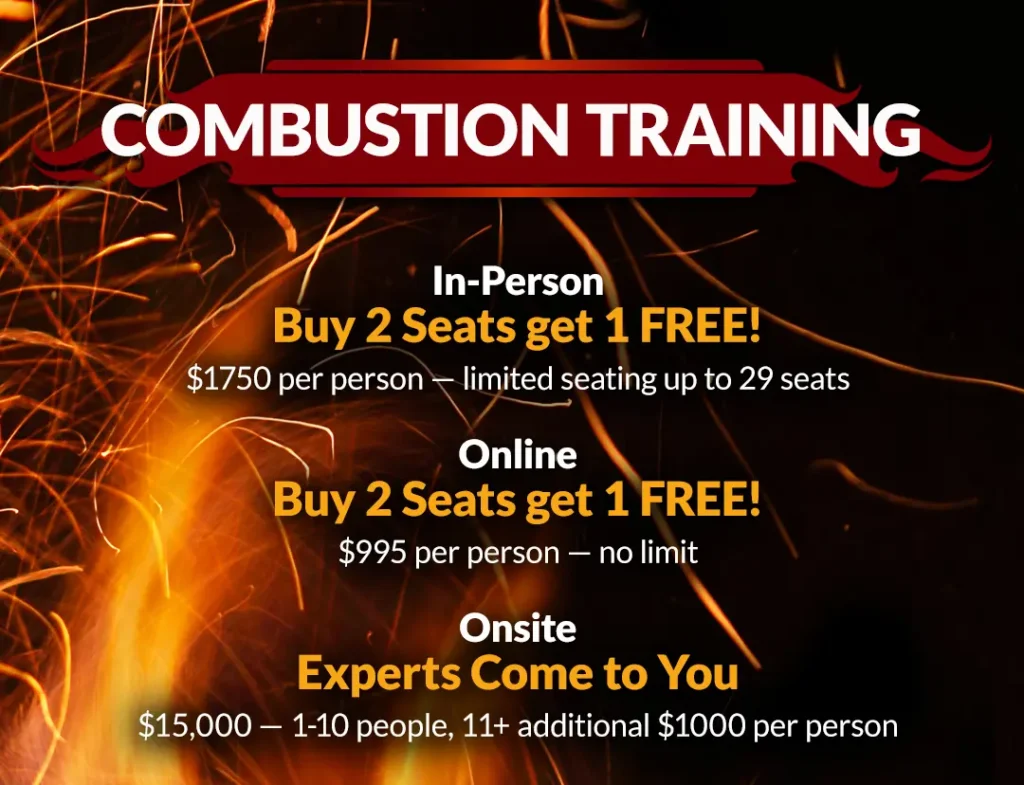Custom NFPA Combustion Applications Workshop
Onsite Experts Come to You
$15,000 – 1-10 people, 11+ additional $1,000 per person.
Why Choose Onsite Training?
- Convenience: Eliminate travel expenses and time away from work by having training conducted at your location.
- Relevance: Address specific challenges and equipment unique to your operations, enhancing the effectiveness of the training.
- Team Cohesion: Train multiple team members simultaneously, fostering a unified approach to safety and compliance.
- Cost-Effective: Onsite training can be more economical for larger teams compared to individual or offsite sessions.
Ready to Enhance Your Team’s Expertise?
Contact us today to schedule your customized Onsite NFPA 86 Combustion Applications Workshop. Our team is ready to bring expert training directly to your facility, ensuring your team is equipped with the knowledge and skills to operate safely and efficiently. For more information or to book your session
*To ensure the highest quality training experience, we recommend a maximum of 20 participants per session.

Onsite NFPA 86 Combustion Applications Workshop
Rockford Combustion offers a customized, expert-led training experience delivered directly at your facility. Our Onsite NFPA 86 Combustion Applications Workshop is designed to provide your team with comprehensive, hands-on instruction tailored to your specific equipment and operational needs.